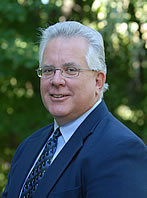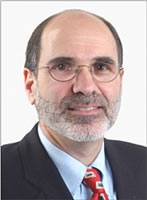The Devereux Early Childhood Assessment Clinical Form (DECA-C) is designed to be used by early childhood mental health consultants and other mental health professionals with select children, ages 2 through 5, who are already showing significant behavioral concerns. The DECA-C is a 62-item scale that can be completed by either teachers or parents in about 15 minutes. The DECA-C contains all of the strength-based resilience items and scales found on the Devereux Early Childhood Assessment for Preschoolers, 2nd Edition (DECA-P2), but also assesses social and emotional concerns, including: aggression, attention problems, emotional control problems, and withdrawal/depression. Measuring both a child's strengths and behavioral concerns, the DECA-C provides a balanced description of the child's behavior and allows for strength-based planning and strategy implementation. Whereas the DECA is designed to be used with all children to promote healthy social and emotional growth, the primary purpose of the DECA-C is to support early intervention efforts to reduce or eliminate significant emotional and behavioral concerns in preschool children. The DECA-C may also be used to guide interventions, help identify children needing special services, assess outcomes, and help programs meet Head Start, IDEA and similar standards.
DECA-C Information Booklet
The DECA-C is designed to be interpreted by a qualified mental health or special education professional. The DECA-C is designed to be interpreted by a qualified mental health or special education professional. A customer qualifications form must be submitted before use of the DECA-C. For more information on these qualifications, click here.
Note: DECA-C record forms also are available electronically in English and Spanish in the e-DECA Assessment and Planning System 2.0, a web-based application that makes it easy to accurately gather, score, and interpret data from the entire suite of Devereux Early Childhood Assessments.
Paul LeBuffe

Paul LeBuffe, M.A., is the Co-Director of the Devereux Center for Resilient Children in Villanova, Pennsylvania. He is a graduate of St. Mary's College of Maryland and received his Master's degree in experimental psychology from Bryn Mawr College. Paul is an author of many widely-used assessments of behaviors related to children's social-emotional strengths and needs including the Devereux Behavior Rating Scale - School Form, the Devereux Scales of Mental Disorders (DSMD), the Devereux Early Childhood Assessment (DECA), the Devereux Early Childhood Assessment Clinical Form (DECA-C) the Devereux Early Childhood Assessment - Infant/Toddler Form (DECA-I/T) and most recently, the Devereux Student Strengths Assessment (DESSA.) His major research interests are the measurement and promotion of social-emotional competence and resilience in children, psychometrics and test development, treatment outcome evaluation in behavioral healthcare, and suicide prevention education.
Jack Naglieri

Dr. Jack A. Naglieri is Professor of Psychology at George Mason University in Fairfax, VA . Prior to his current position he was Professor of School Psychology and Psychology at the Ohio State University where he taught from 1982 to 2000. He also is a Fellow of American Psychological Association (APA) Division 16, recipient of American Psychological Association Division 16 2001 Senior Scientist Award, and holds an appointment as a senior Research Scientist at the Devereux Foundation's Institute for Clinical Training and Research (ICTR).
Dr. Naglieri obtained his Bachelor's degree in Psychology from Long Island University, Master of Science from St. John's University, and Ph.D. in Educational Psychology from the University of Georgia in 1979. He worked as a school psychologist in the New York area from 1974-1977. The author of more than 150 scholarly papers, chapters, books, and tests, he has focused his efforts since the late 1970s on re-conceptualizing intelligence.
Jack A. Naglieri is the co-author of the Devereux Early Childhood Assessment (DECA) and the Devereux Early Childhood Assessment Clinical Form (DECA-C). He is also the author of the Cognitive Assessment System (Naglieri & Das, 1997), the CAS Scoring Aide (Naglieri, 2002), the General Ability Measure for Adults (Naglieri & Bardos, 1997), Naglieri Nonverbal Ability Test (Naglieri, 1996), Devereux Scoring Assistant (LeBuffe, Naglieri, & Pfeiffer, 1996), Devereux Scales of Mental Disorders (Naglieri, LeBuffe, & Pfeiffer, 1994), Devereux Behavior Rating Scales School Form (Naglieri, LeBuffe, & Pfeiffer, 1994), Draw A Person: Screening Procedure for Emotional Disturbance (Naglieri, McNeish, & Bardos, 1990), Draw A Person: Quantitative Scoring System (Naglieri, 1988), Matrix Analogies Test (Naglieri, 1985).